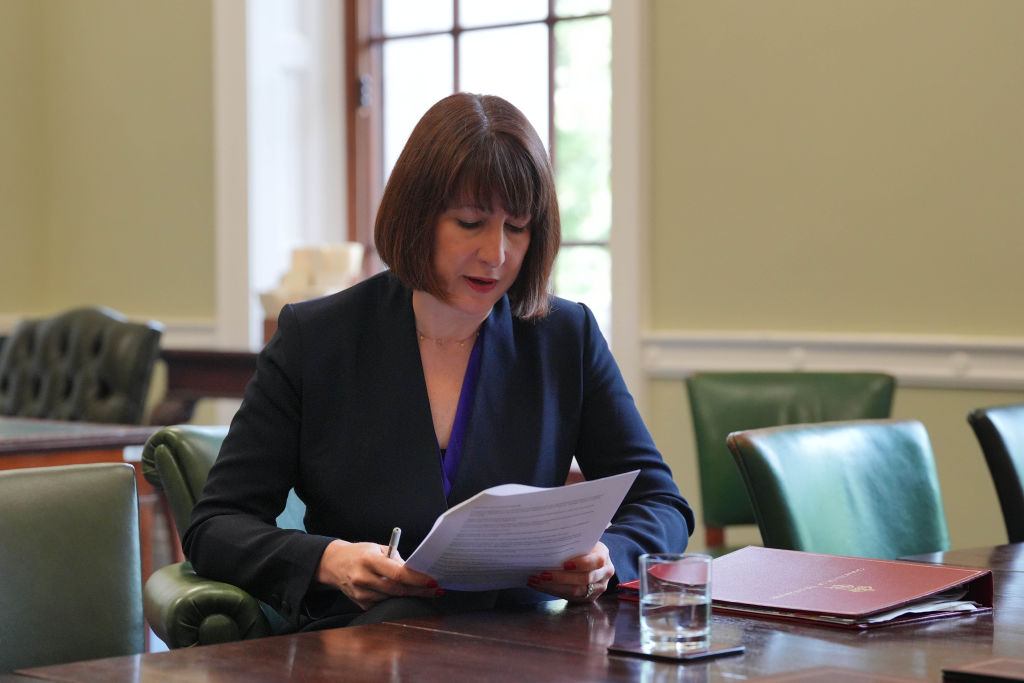Rachel Reeves announces major change to fiscal rules to free up billions of pounds
The chancellor has confirmed she will change the UK’s fiscal rules in her Budget next week - but taxes are still set to rise


Get the latest financial news, insights and expert analysis from our award-winning MoneyWeek team, to help you understand what really matters when it comes to your finances.
You are now subscribed
Your newsletter sign-up was successful
Want to add more newsletters?

Twice daily
MoneyWeek
Get the latest financial news, insights and expert analysis from our award-winning MoneyWeek team, to help you understand what really matters when it comes to your finances.

Four times a week
Look After My Bills
Sign up to our free money-saving newsletter, filled with the latest news and expert advice to help you find the best tips and deals for managing your bills. Start saving today!
Rachel Reeves has confirmed she will change the UK’s fiscal rules in her Budget next week, which will free up billions of pounds for infrastructure spending.
The chancellor said she would make the technical change to the way debt is measured in order to allow the government to pay for extra investment.
She told the BBC that the change was being made "so that we can grow our economy and bring jobs and growth to Britain".
MoneyWeek
Subscribe to MoneyWeek today and get your first six magazine issues absolutely FREE

Sign up to Money Morning
Don't miss the latest investment and personal finances news, market analysis, plus money-saving tips with our free twice-daily newsletter
Don't miss the latest investment and personal finances news, market analysis, plus money-saving tips with our free twice-daily newsletter
The tweak is expected to allow for up to £50bn of extra borrowing to invest in major building projects such as roads and railways. It is expected that the extra money will be used over the course of Labour’s term in power rather than being earmarked for projects in the Budget next week.
Reeves confirmed the change during a trip to the International Monetary Fund’s annual meetings in Washington.
Shadow chancellor Jeremy Hunt said increasing borrowing could mean that interest rates would be higher for longer, which would “punish families with mortgages". "The markets are watching," he added.
Despite the change to the fiscal rules, however, the Budget next week is still expected to result in some cuts to public services and tax rises.
Which taxes could go up in the Autumn Budget?
The much-anticipated Budget will take place on 30 October and is likely to kick off at around 12:30 UK time, just after Prime Minister’s Questions.
Prime minister Keir Starmer has previously warned that the Budget will be “painful” and involve “tough decisions”, leading to speculation about tax hikes.
Over the summer, Reeves accused the former Conservative government of leaving a £22 billion shortfall in the public finances. In recent days, talk has turned to a £40 billion “funding gap” – the sum Reeves is reportedly looking to raise through a combination of spending cuts and tax rises.
Labour has previously promised not to raise income tax, employee National Insurance contributions or VAT. But there are a range of other areas that could be targeted, such as pensions, inheritance tax (IHT) and capital gains tax (CGT).
Furthermore, while income tax rates are not expected to rise, taxpayers will find themselves paying a larger annual bill regardless thanks to the silent tax collector that is fiscal drag.
The personal allowance and income tax thresholds have been frozen until 2028, meaning taxpayers are increasingly finding themselves being dragged into a higher band of tax as their salary increases with inflation.
If the latest rumours are true, Reeves could be looking to extend this freeze (imposed by the previous Conservative government) until the end of the current parliament.
Labour has also confirmed that it will add VAT to private school fees from 1 January 2025 to help fund more teachers in the state sector, meaning costs could increase by up to 20%.
Get the latest financial news, insights and expert analysis from our award-winning MoneyWeek team, to help you understand what really matters when it comes to your finances.
Chris is a freelance journalist, and was previously an editor and correspondent at the Financial Times as well as the business and money editor at The i Newspaper. He is also the author of the Virgin Money Maker, the personal finance guide published by Virgin Books, and has written for the BBC, The Wall Street Journal, The Independent, South China Morning Post, TimeOut, Barron's and The Guardian. He is a graduate in Economics.
-
 Should you buy an active ETF?
Should you buy an active ETF?ETFs are often mischaracterised as passive products, but they can be a convenient way to add active management to your portfolio
-
 Power up your pension before 5 April – easy ways to save before the tax year end
Power up your pension before 5 April – easy ways to save before the tax year endWith the end of the tax year looming, pension savers currently have a window to review and maximise what’s going into their retirement funds – we look at how
